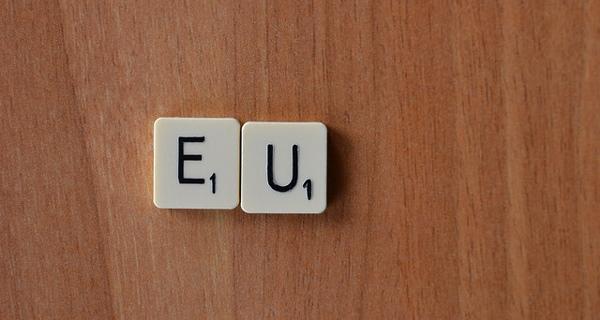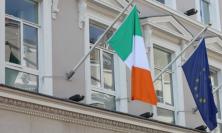The focus of the campaigning leading up to the referendum on UK membership of the EU has been too narrowly economic and misrepresentations abound on both sides, writes Frank Turner SJ. The opportunities for scrupulous consideration of the issues and for authentic political debate have been missed, and now ‘the character of the debate threatens the EU whatever the outcome on 23 June.’ Which areas of interest and importance has the public forum struggled to accommodate?
The referendum on 23 June poses the question: ‘Should the United Kingdom remain a member of the European Union or leave the European Union?’ That question is fair, not loaded. However, it demands a simple, unqualified, almost crude answer: no one may answer ‘Remain’ or ‘Leave’ …. but only ‘on certain conditions’. However complex the issue, such simplicity of formulation is unavoidable in referenda, which seem to be a poor instrument to resolve complex questions. There are excellent reasons for living not in a direct democracy but in a representative democracy.
I would argue a double position. The EU, with all kinds of necessary qualifications, is a good and necessary institution. (This is a claim about the EU itself.) Second, the UK should remain a member. (This second proposal does not make sense without the first, The Vote Leave campaign hotly denies it, and unfortunately the Government has hardly defended it).
The following argument will also have a double character:
1. Economic arguments are always and rightly important in politics: but debates such as this one, about membership, are primarily political;
2. The narrowness of focus in the current fierce and often polemic debate is not only regrettable but destructive.
Economics and politics
For decades, the EU was popularly known in Britain as the ‘Common Market’. Successive British governments have viewed the EU primarily through the prism of economics. Economic questions always lie at the heart of elections, and parties will not be elected without being thought economically competent. But there is more to democracy than economics, and economic logic (especially the logic of the market) has little to do with democracy.
In the economic sphere I believe that the EU’s ideal of the ‘social market economy’ is more fully human and more consistent with Christian social thought, than that of the ‘free market economy’. The ‘free market’ discounts equity and justice in favour of growth and profit (in the pious but vague hope that eventually the markets will somehow correct themselves). I see no reason to promote growth indiscriminately, in the absence of fairer distribution and greater social equality. Rapid growth in crude GDP terms only entrenches inequalities of power which render the poor actually worse off than before. The American social theologian Joe Holland liked to say, ‘The economy’s doing fine, it’s just the people having a hard time’.
I know of no document which contrasts a free economy with a free-market economy more concisely than Pope St John Paul II’s Centesimus Annus of 1991. He attributes to the state,
the task of determining the juridical framework within which economic affairs are to be conducted, and thus of safeguarding the prerequisites of a free economy, which presumes a certain equality between the parties, such that one party would not be so powerful as to reduce the other to subservience. (§15, emphasis added)
Thus economics is a far broader sphere than market thinking. The British political achievements for which I’m most grateful – the NHS, the provision of excellent public libraries, subsidised growth of third-level education – have an essential economic dimension, but were established against market resistance and are now under renewed threat from market forces.
The market is an instrumental good. In a social market economy, promoting the market is to be balanced by preserving those goods, goods greater than the market itself, which the market threatens: solidarity with the vulnerable; social justice (in the form of ‘social inclusion’); a kind of rebalancing, for example through the redistribution of the EU’s structural funds to poorer states, and to the poorer regions of more prosperous states.
This general discussion is relevant to our topic because the British Government insistently calls for ‘EU reform’, though the changes it demands are rarely what I would regard as ‘reform’ at all. The UK already has protocols exempting it from measures which preserve the necessary tension here noted, between market and non-market goods: the Social Chapter of the Treaty of Maastricht and some labour provisions of the Charter of Fundamental Rights of the EU (even though labour rights are under deep threat in the global economy), which the UK deemed to be ‘too costly for business’. I prefer the EU’s attempt to balance the interests of business and of the broader society to British ‘reform’. Membership of the EU helps restrain some of the worse instincts of British governments.
The EU, however, is not primarily an economic association. The economic structures put in place from 1950 onwards did not have the primary goal of maximising economic growth. Through political action they sought to unite the economies of warring states in such a way that war would in future be unthinkable between them.
It is salutary to remember that from 1900 to 1950, some 60 million people died by violence on the European continent; from 1950 to 2000 about 1 million. The EU cannot claim sole credit for that contrast: but its original and primary purpose was to establish a structure – binding together the central industries of the warring states – that would soften the most lethal nationalisms of the 20th century. Despite occasional but terrible failures along the way (as after the break-up of the former Yugoslavia) it has achieved this end. No one thinks Britain or France will now go to war with Germany or Italy.
That peace dynamic still operates. The EU integrated several countries emerging from the Soviet system into the EU not for economic reasons (the EU became more economically vulnerable as a result) but to incorporate what Pope John Paul II called ‘the two lungs of Europe’. In this way the EU significantly enabled the post-Soviet political reconstruction of Europe. Peace in Europe trumped economics.
The politics of sovereignty
I wrote of the ‘lethal nationalisms’ of the 20th century. Those nationalisms persist. They appeal to the principle of state sovereignty. China’s claim, for instance, that any outside intervention in its internal affairs (to defend human rights, or press freedom) is ‘interference with its sovereignty’, turns the state into an unchallengeable ultimate (that is, theologically speaking, an ‘idol’). On the contrary, states have obligations beyond themselves: by international and humanitarian law, by treaty, and by the sheer reality of human interdependence and human need.
The UK is not inherently isolationist. It is proud of the ‘special relationship’ with the USA. Its traditional structure of partnership has been the Commonwealth, which explains some of the original opposition to its joining the EU in 1973. The UK is commendably generous in maintaining its level of support for the global development goals. Yet when it comes to the EU (and now, especially, to the referendum debate) the nationalist perspective emerges with great force. In Westminster you would regularly hear a question about how some EU policy affects the UK. You would never hear anyone ask how some proposed UK policy would affect the EU.
This perspective is not unique to the present Government. Under Labour, the UK strongly supported the entry of Turkey into the EU, but for British reasons. The UK wished the broadest possible membership to promote the enlarged scope of the single market, and Turkey’s market of some 75 million people was attractive. Yet Turkey’s entry would – conveniently for Westminster – rule out any project of deeper political union.
The founders of the EU believed that shared sovereignty (which involves a measure of willingness to moderate unilateral demands) is not loss, but enrichment. I think many Britons, and their government, assume that shared sovereignty is lost sovereignty. Sovereignty is taken to be a zero-sum game. I do not believe that. In fact (and as neither side in the debate cares to point out) the EU combines the modes of shared sovereignty and member-state sovereignty. The ‘competences’ of the EU institutions are strictly limited. The Commission (a kind of enhanced civil service, non-elected) serves the EU as a whole. The nationally elected Parliament embodies representative democracy, and in the Council, heads of state, prime ministers and thematic ministers represent the states themselves, both as partners and competitors. (Significantly, the UK consistently prefers to work through the Council.)
In terms of economics, globalisation renders sovereignty almost a fiction. Global corporations effortlessly play off one country against another on labour rights, taxation and environmental protection. Foreign-owned multinationals help determine levels of investment and jobs in the UK, as a consequence of a process in which national institutions and businesses have been both privatised and globalised. What is national sovereignty, when Britain’s energy security is largely dependent on the French and Chinese governments deciding whether or not Hinkley Point nuclear power station will be built, and between them owning the project? Or when the survival of the UK’s steel and motor industries depends on decisions taken in India, Germany and Japan?
Formal sovereignty is therefore very different from autonomy. Outside the EU the UK would be more naked than before in resisting states and transnational corporations far more powerful than itself.
In terms of politics, the greatest challenges of the modern world simply cannot be addressed without supranational structures of partnership and governance: climate change, refugee and migratory flows, the taxation of transnational corporations. It is too much to expect ‘solutions’, and the refugee crisis in particular could overwhelm all established systems of governance. But any adequate response will require common action and shared commitments.
The quality of the public debate
The Government’s referendum campaign recognises the last point above. Mr Cameron has said that he has little positive esteem for the EU but it would be cold outside. International trade, for example, is the only sphere in which the UK consistently acts as a member of a larger EU bloc, in order to enable competition with China, India, the USA. President Obama noted that it would take the USA 5-10 years to negotiate a new trade deal with the UK, since the USA would certainly continue its attempt to reach an agreement first with the EU itself, its largest trading partner.
Thus the official Government pamphlet, issued last month to every UK household, begins, ‘The UK has secured a special status in a reformed EU’ [emphasis in original], and sums up in five points:
- we will not join the Euro;
- we will keep our own border controls;
- the UK will not be part of further European political integration;
- there will be tough new restrictions on access to our welfare system for new EU migrants;
- we have a commitment to reduce EU red tape.
All these points are negative. The last of them is nothing less than demeaning: what the UK regards as ‘red tape’ may include vital regulations on environmental protection, food safety or labour rights – in a world where labour rights are everywhere threatened by transnational corporations. The pamphlet also includes one statistic which, while technically correct, is shamefully intended to mislead.[1] Facts sometimes disguise truth rather than express it.
The campaign of Vote Leave is still more blatant in its falsehoods and misrepresentations. The latest copy of its campaign pamphlet is entitled ‘Vote Leave, take back control’.[2] It repeats four times the claim that we ‘send’ or ‘hand over’ £350 million per week to the EU. Once it varies this phrase: ‘The EU costs us over £350 million a week. Enough to build a brand new, fully-staffed NHS hospital every week’.
Those two expressions mean different things. The phrase ‘send’ refers to the gross amount contributed, whereas the phrase ‘costs us’ refers to net contribution allowing for what the UK receives: this net sum is estimated as £120 million per week, a contribution which most economists think is less than the UK gains from its access to the single market. Second, no one can say that any ‘savings’ would be mainly directed towards hospital building, as the campaign implies.
Again, the pamphlet alleges repeatedly that ‘the EU Court’ or ‘the European Court’ or ‘EU judges’ control life in the EU. ‘The European Court will be in charge of our borders, immigration, asylum and even our intelligence services’. This claim is nonsense. The European Court of Justice (ECJ) has the task of interpreting EU law to ensure it is applied in the same way in all EU countries. It settles legal disputes between national governments and EU institutions. It can also be used by individuals, companies or organisations to take action against an EU institution, where they believe their rights to have been infringed. The Law itself is determined not by the Court but by treaty.
Similarly, when the Vote Leave pamphlet claims, ‘The Eurocrats are just waiting to get our referendum out of the way before pushing ahead with the new treaty to take even more money and power’, it fails to note that any new treaty would need to be agreed unanimously by the member states. No law can be imposed on the UK which it has not itself accepted by treaty.
As a final example take the crucial and fraught topic of immigration, inevitably at the centre of debate. The pamphlet urges, ‘Let’s take back control of our borders: a quarter of a million EU migrants come here every year – a city the size of Newcastle’. The UK is not part of the Schengen border-free area and has control of its borders. It was shown too that this figure of 250,000 conflates migrants who come to live in Britain and short-term seasonal workers who leave quickly.
In debating ‘Brexit’ recently before a Christian audience with a prominent ‘Brexiteer’, Jacob Rees-Mogg MP, I met the Vote Leave tactic of firing off such a barrage of unsubstantiated allegations that some mud was bound to stick. It was impossible to pick up all the distortions even if one was adroit enough to spot them: trying to do so would also ensure that debate was focused solidly on Vote Leave’s preferred territory. I take two examples of absurd claims which were presented that evening as reasons for Christians to reject the EU:
- ‘The EU, originally of Christian inspiration is now an “apostate state”.’ It is surprising how many distortions can be packed into one contention. (i) Some of the founders were Christian, some not; (ii) the EU is not a state at all: therefore it was never ‘a Christian state’ and by definition cannot be – in the insulting term – ‘apostate’; (iii) nor would one wish the EU (or indeed a state, any state) to be ‘Christian’. The EU’s citizens include substantial minorities of Muslims, Hindus, Jews, and of those without any religion. Further, Benedict XVI, in his visit to the UK in 2010, repeatedly acknowledged the rightful validity of the secular state.
- ‘The EU finances abortions in Africa.’ Well, the EU finances sexual and reproductive health programmes (vital especially in regions of high mortality at childbirth), in which abortions may be carried out in accordance with the law of the country concerned: just like the UK’s own Department for International Development. Our own Government ‘finances abortions’ in just about every maternity hospital in the UK.
Dismally, therefore, we are faced with overwhelmingly self-interested arguments from the Government and even cruder counter-claims from Vote Leave. At the level of personal values, the attitude of existing in a state of permanent dissatisfaction, of always wanting more, poisons relationships and the springs of joy. I admire many politicians and don’t regard the life of politics as a sphere where we are content to operate out of our worst egoistic selves, and I am sad that the British debate embodies this bitterness, this almost lack of generosity and openness to others. Not only that, but the character of the debate threatens the EU whatever the outcome on 23 June, for the logic of univocal national self-interest is contagious and prevents committed collective action.
Vote Leave’s campaign, if successful, will configure the UK as a state which (if it indeed survives without breaking apart itself) refers all political questions to its direct self-interest. The Government asks not how can we gain a fair agreement, but how can ‘we’ gain over against everyone else. I don’t want Mr Cameron’s ‘special status’ in the EU, I want equal status. So the Government argues for the position I strongly support, the UK’s continued membership of the EU, for reasons that I don’t like at all, seeking a combination of maximum benefits for itself and minimum commitment to others.
I hope we stay in, for our own sake and for the sake of the EU. But I also hope we are willing to be a different kind of member, sharing both benefits and costs. I want us to seek the good of the EU in which the UK’s own good is included.
Frank Turner SJ worked from 2005-14 at the Jesuit office in Brussels that reflects and comments on the affairs of the European Union. He is now a Fellow in Political Theology of Campion Hall, University of Oxford, and is the Delegate for the Intellectual Apostolate of the Jesuits in Britain.
[1] It wishes to undermine the claim that UK could leave the EU but still negotiate a trade deal. ‘Less than 8% of EU exports come to the UK while 44% of UK exports go the EU’. Evidently the rest of the EU’s exports to a single state will be a far smaller proportion than Britain’s exports to 27 states, 450 million people!
The appropriate comparison would be UK exports to and imports from the EU. 44% of the UK’s exports in 2015 went to the EU, whereas 53% of the UK’s imports came from the EU.
[2] http://d3n8a8pro7vhmx.cloudfront.net/themes/55fd82d8ebad646cec000001/attachments/original/1463496002/Why_Vote_Leave.pdf?1463496002, accessed 13 June 2016.






